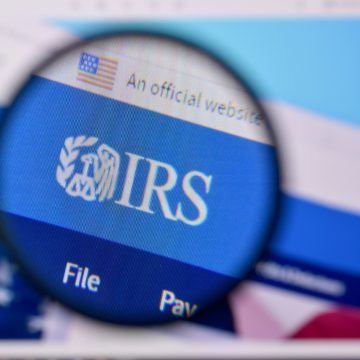
It is too late apply under the CARES Act Paycheck Protection Program, but another chance to borrow has been rolled out under new legislation.
Learn More About PPP Second DrawDid you decide sometime in the past few months not to apply for a Paycheck Protection Program (“PPP”) loan because your business was forced to remain closed or because you had to lay off employees? If so, it was probably not a difficult decision- “What’s the point of taking the loan when I have 8 weeks to spend it and my business is closed?” Well, due to numerous changes in the law, you may want to re-think that decision.
On July 4, 2020, President Trump signed into law Senate Bill 4116, which will be referred to in this writing as the “PPP Extension Act”. The PPP Extension Act is a very short Bill with a very long name, but its substance is the extension of the deadline to apply for a PPP loan.
Without the PPP Extension Act, the deadline to apply for a PPP loan expired on June 30, 2020. The PPP Extension Act changed the deadline to August 8, 2020. This extension is relevant for a few primary reasons. First, the Paycheck Protection Program Flexibility Act of 2020, which became law on June 5, 2020, provided that loan forgiveness will not be reduced due to decreased employment numbers if the borrower cannot re-hire the same or similar situated employees that were previously laid off or voluntarily resigned, despite attempts to re-hire such persons. Forgiveness will also not be reduced due to decreased employment numbers if the borrower can document an inability to return to the same level of business activity as such business was operating at before February 15, 2020, due to compliance with requirements established or guidance issued by the Secretary of Health and Human Services (HHS), the Director of the Centers for Disease Control and Prevention (CDC), or the Occupational Safety and Health Administration (OSHA) during the period beginning on March 1, 2020, and ending December 31, 2020, related to the maintenance of standards for sanitation, social distancing, or any other worker or customer safety requirement related to COVID–19, resignations, or forced layoffs due to COVID-19.
Secondly, the covered period during which PPP loan funds must be used now expires 24 weeks after the loan is received or December 31, 2020, whichever comes first. With businesses opening up again, there is plenty of time to spend PPP funds.
Thirdly, the minimum amount of PPP funds that must be spent on payroll before forgiveness is reduced was lowered from 75% to 60%.
Finally, as of July 6, 2020, almost $132 billion in PPP loan funds were still available! While the first round of funding under the CARES Act was snatched up quite quickly, the second round of funding has had much lesser demand (and many borrowers have returned funds after threats of review/audit by the SBA).
Many businesses may have resisted taking a PPP loan due to government-mandated closures, voluntary employee resignations, or forced layoffs. With an 8-week covered period (originally) and a requirement that 75% of PPP funds be spent on payroll (originally), businesses forced to close were mostly unable to use PPP funds on anything other than rent and utilities. Such uses were allowable, but without being able to commit at least 75% to payroll costs, much of the loan would not have been forgivable. But given new rules relaxing the original reduction in forgiveness standards, combined with a lower payroll cost floor (60%) and a longer covered period, borrowers who previously did not apply because they would be unable to use the PPP funds or would not be able to obtain 100% forgiveness may want to re-think taking a PPP loan. With approximately 4 more weeks to apply and $132 billion up for grabs, there is still plenty of time and plenty of money to be had.
Nothing in this writing is intended to be, and should not be viewed as, advice that you should in-fact obtain a PPP loan if you have not already. The fact that more time has been granted and that funds are still available does not mean that you will qualify for a PPP loan or that a PPP loan makes sense for your business. Regardless, please do not hesitate to contact your Carlile Patchen & Murphy LLP attorney if you have any questions about PPP or other COVID-related relief programs.





0 Comments